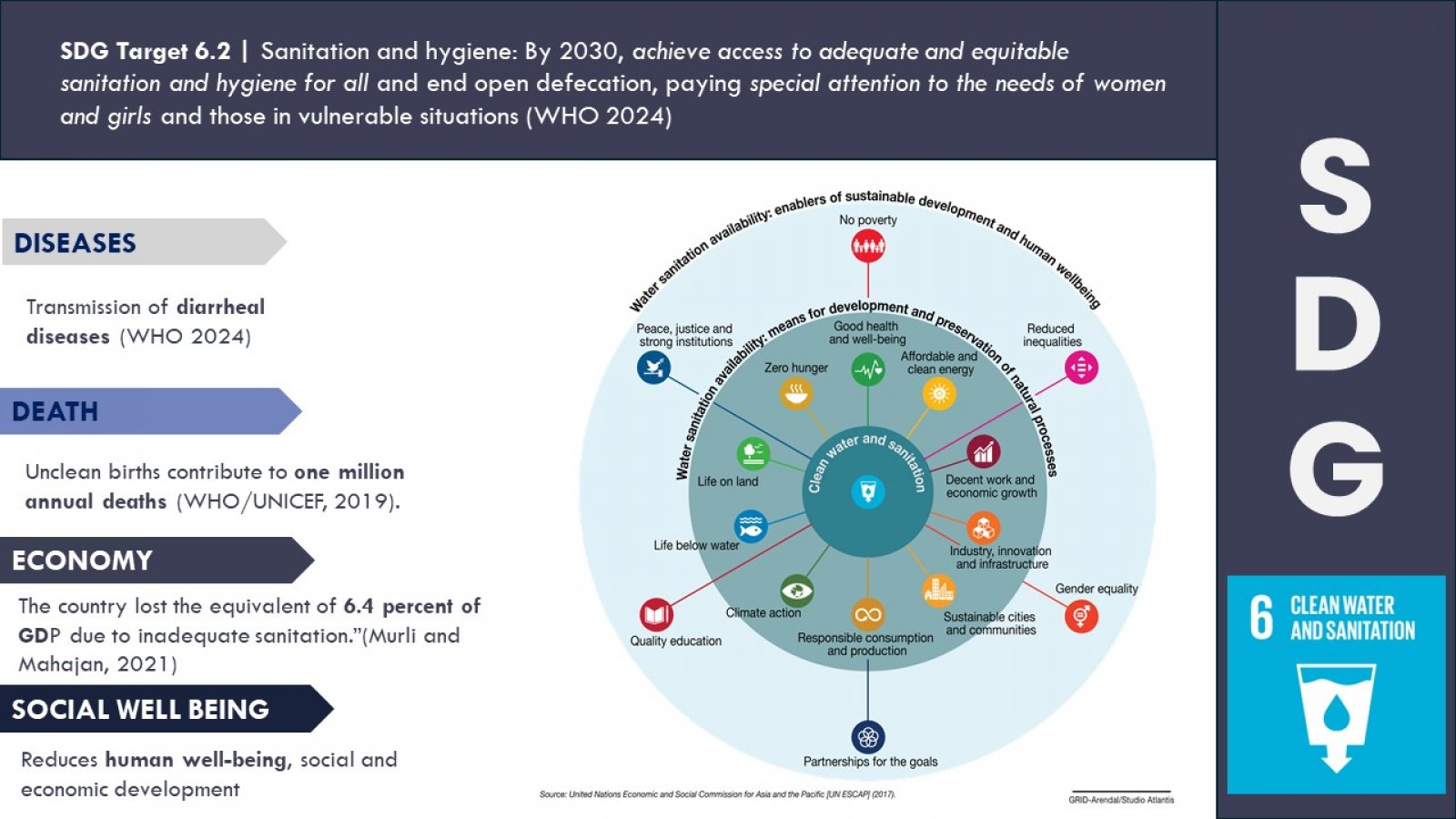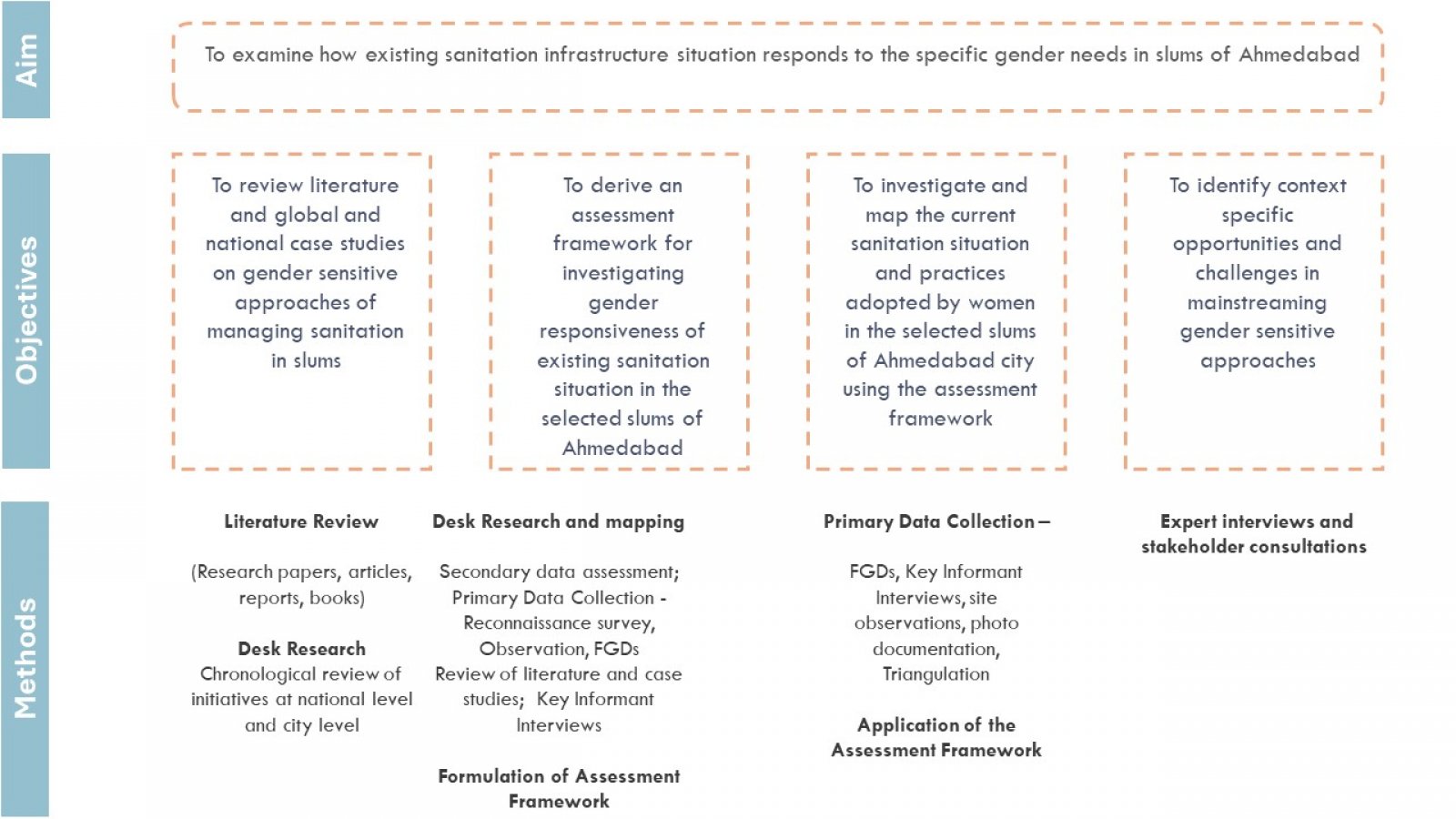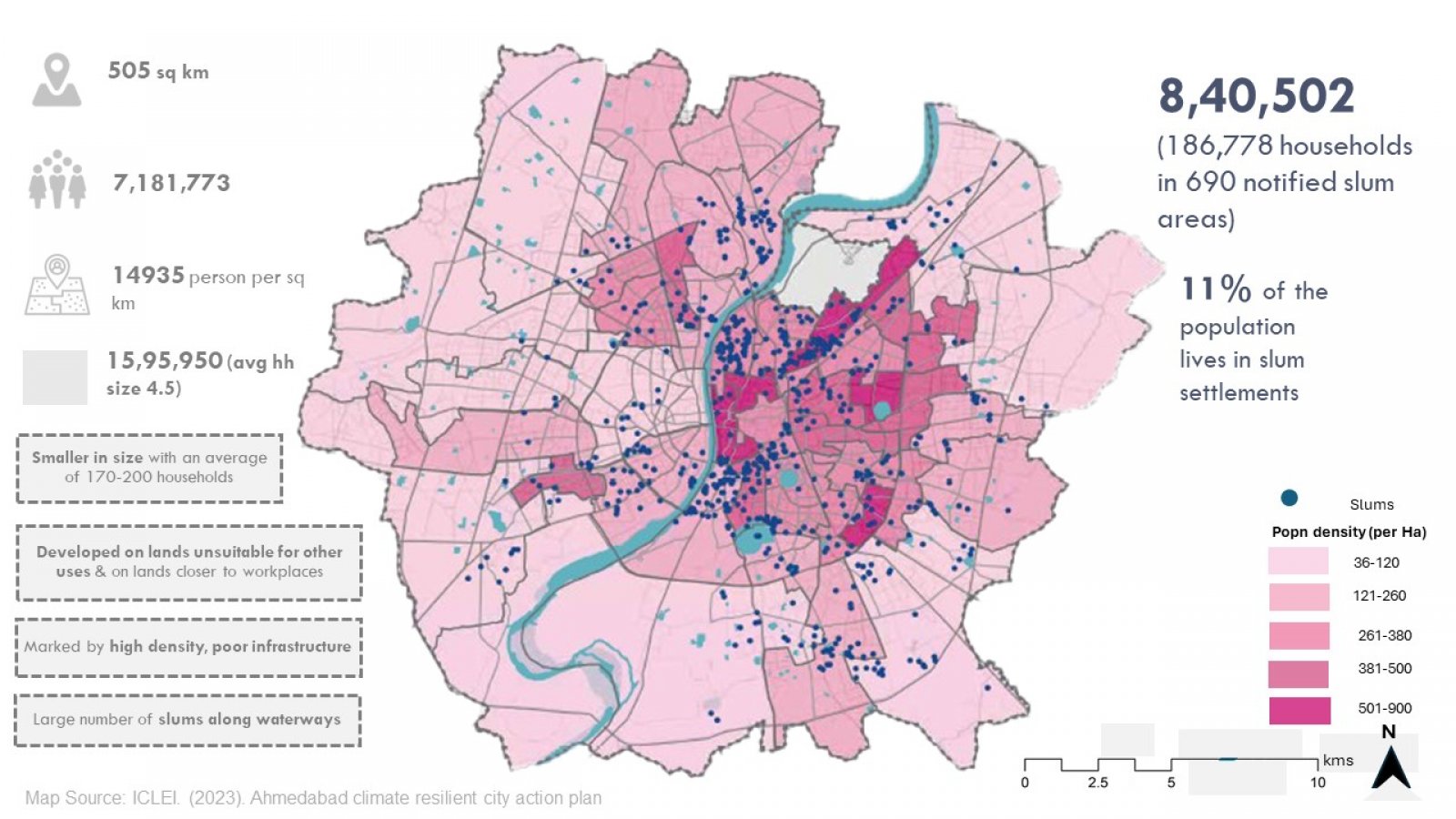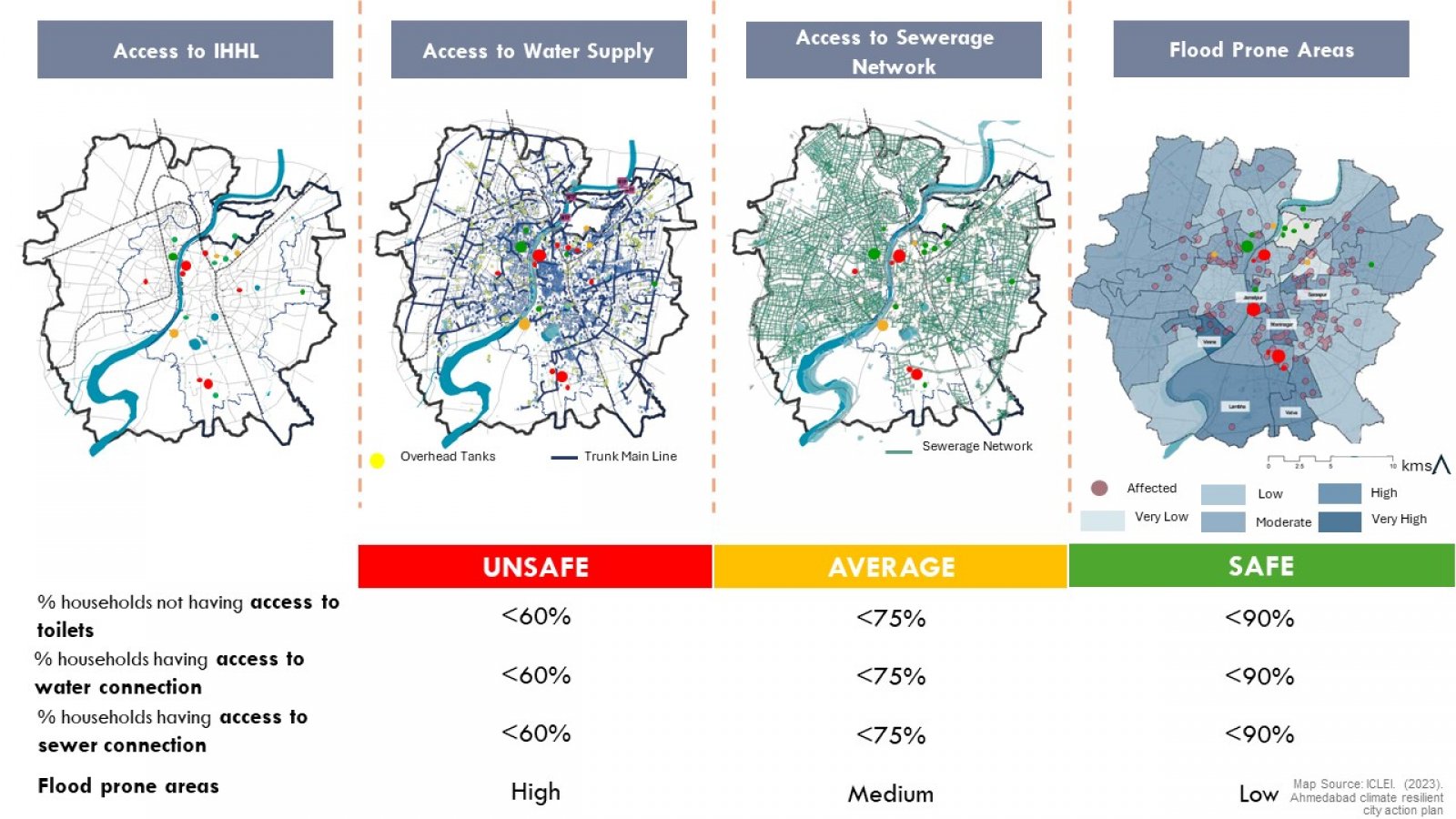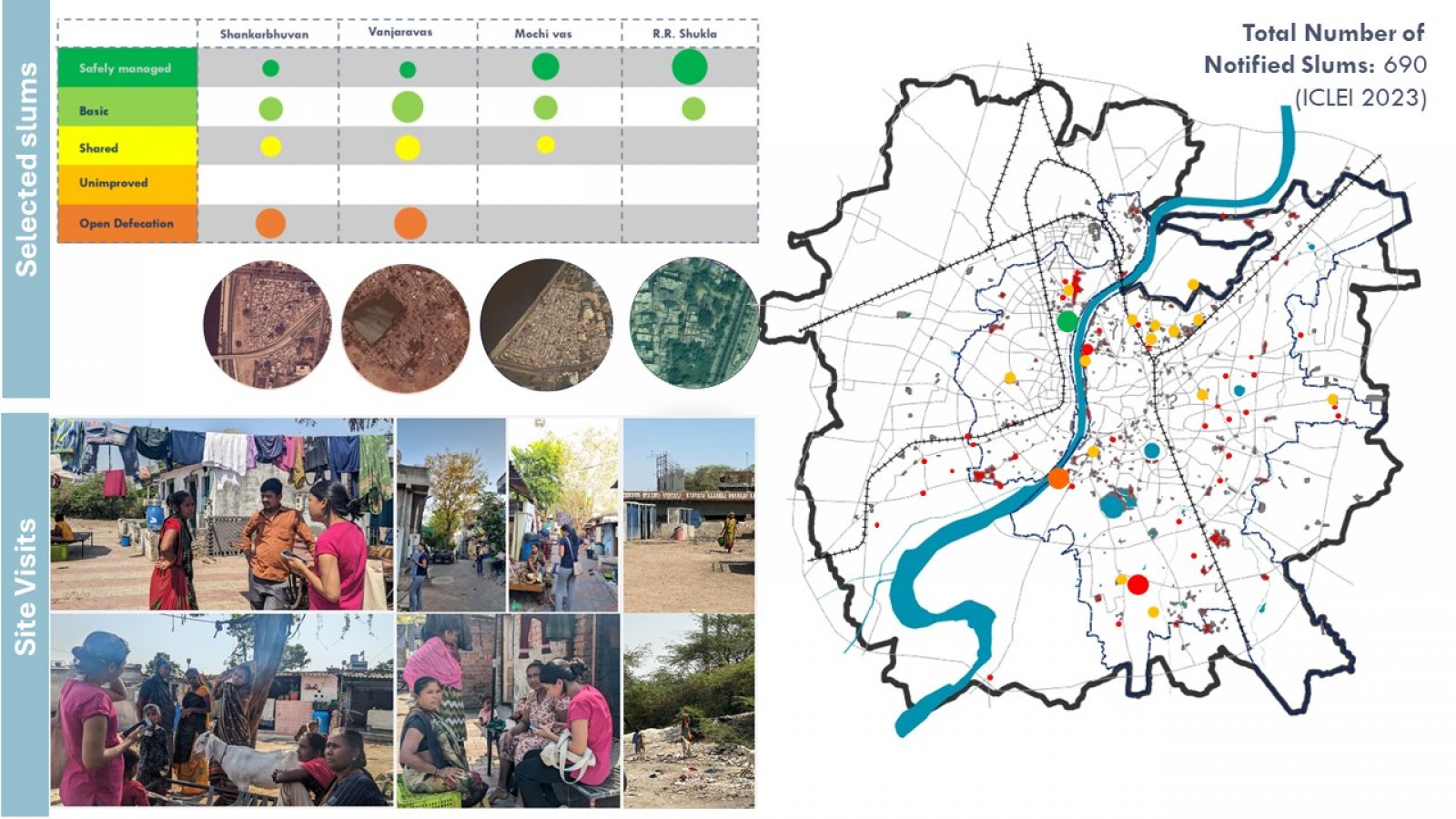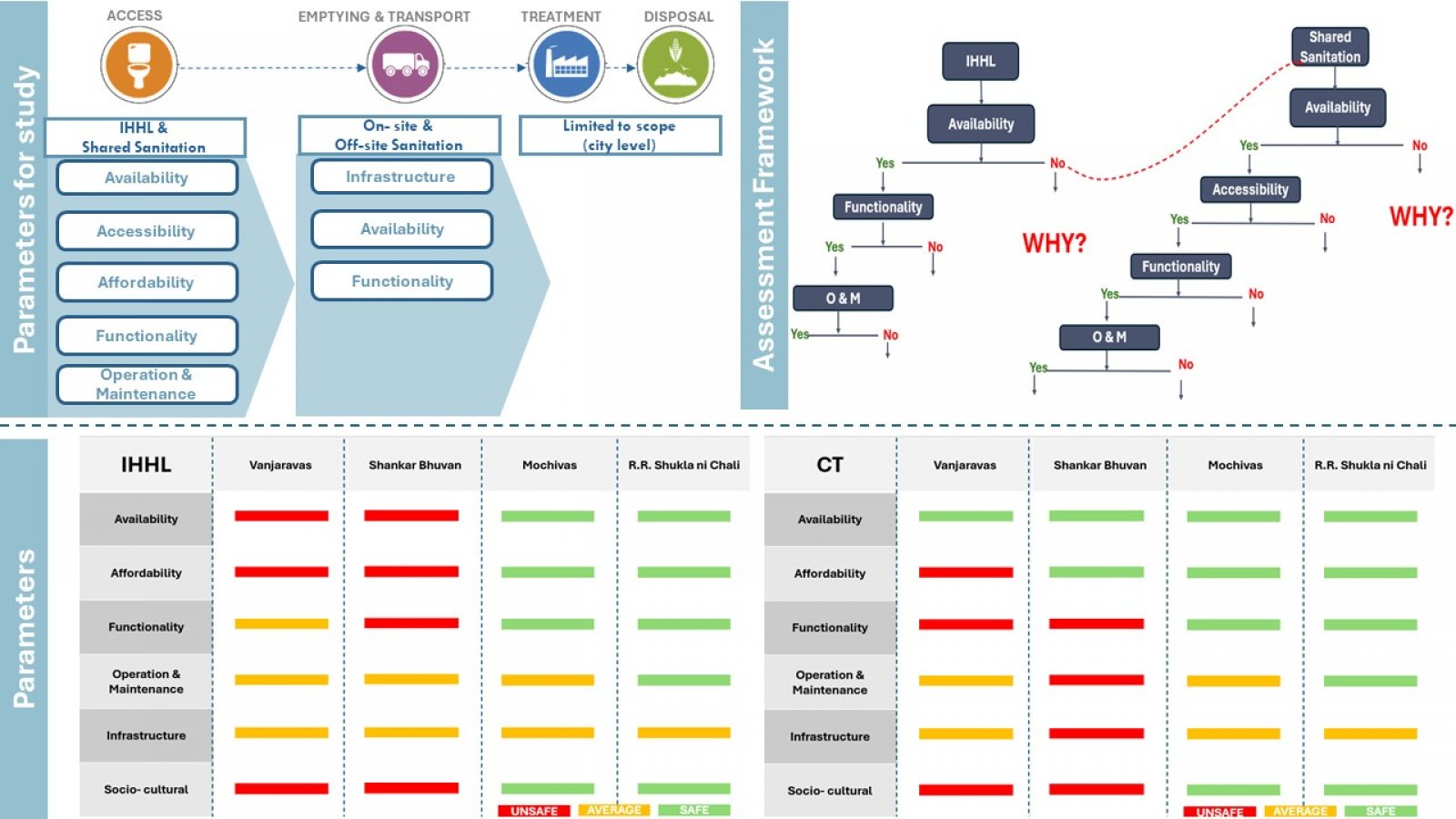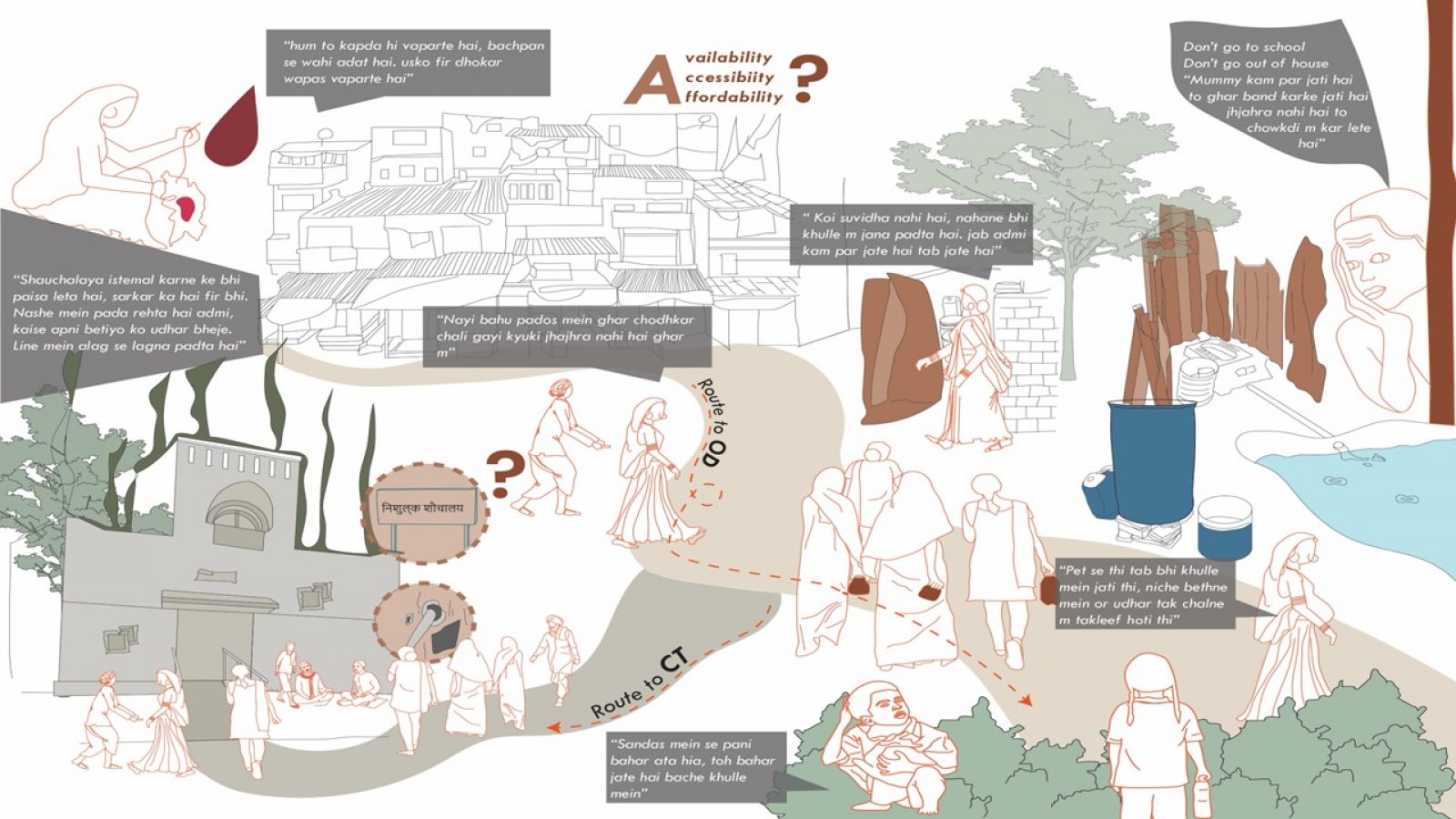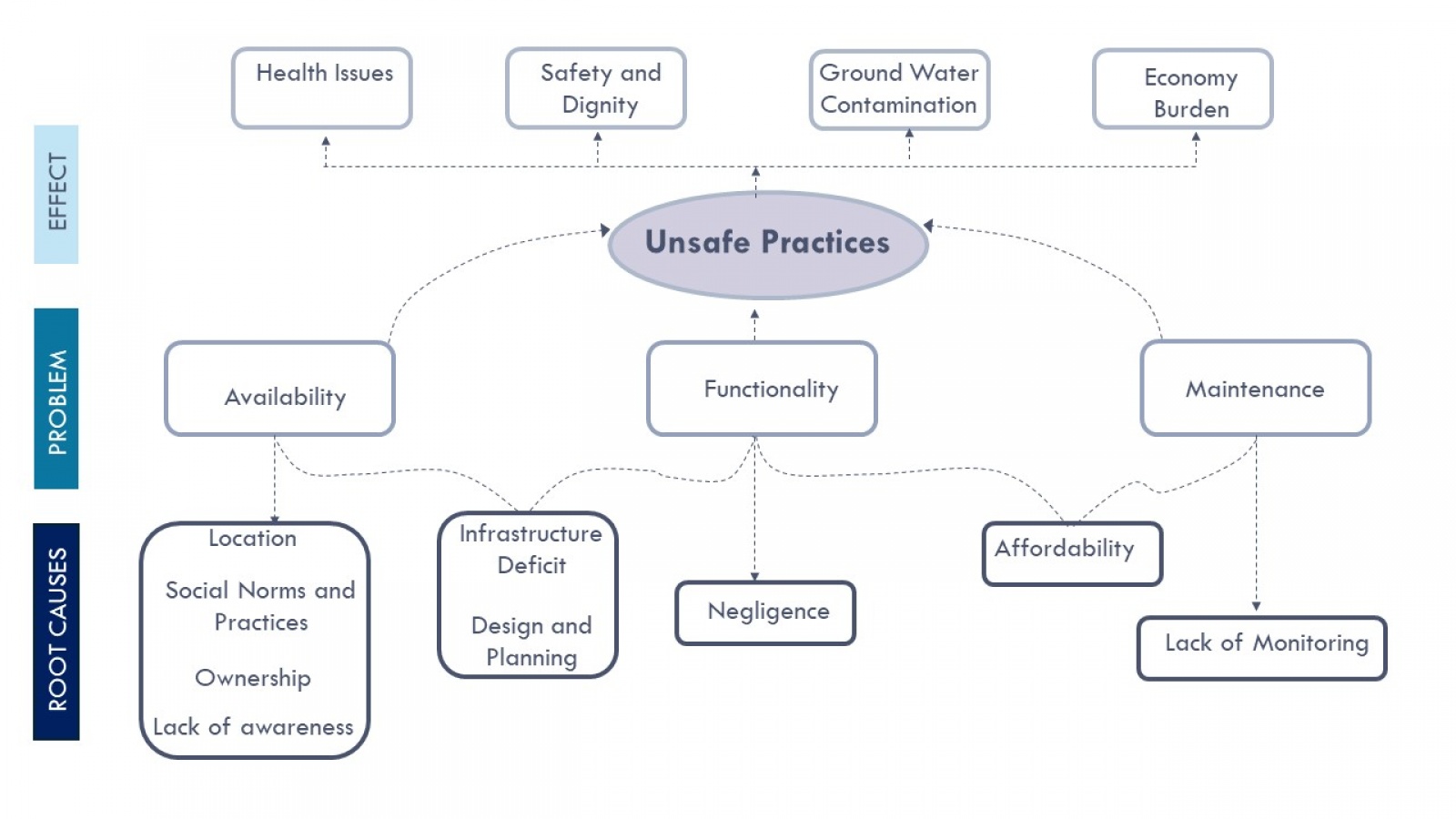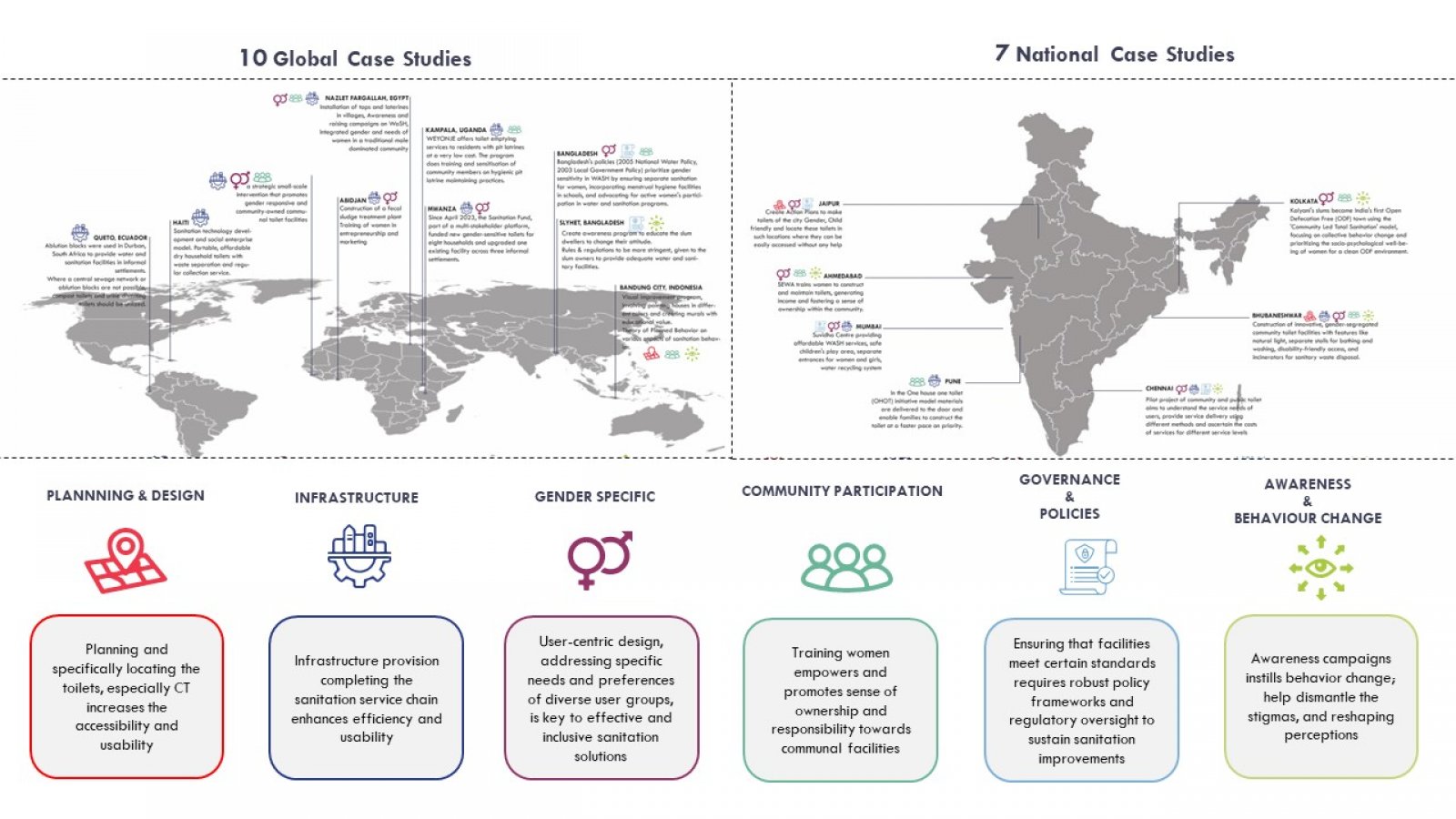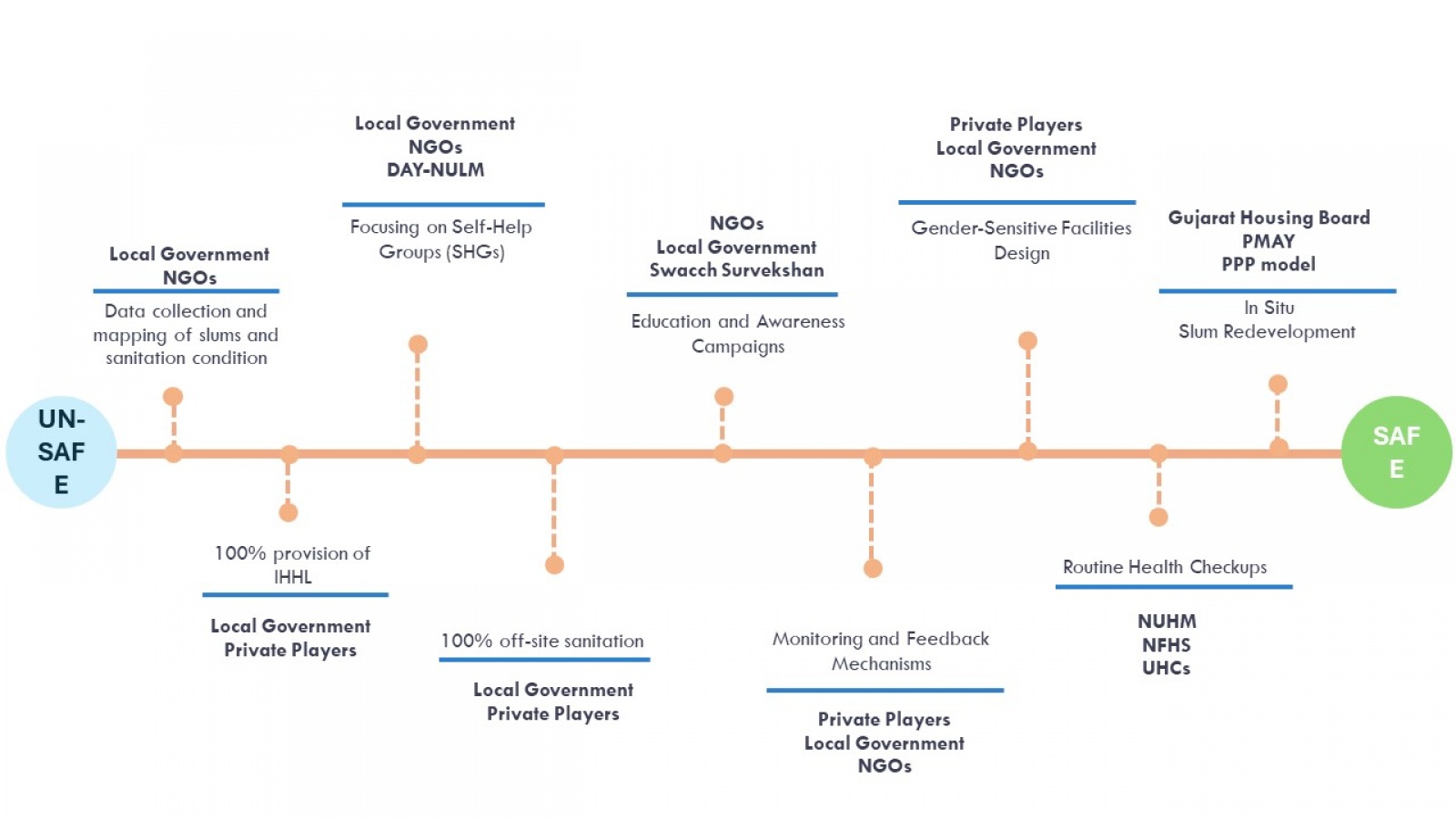Your browser is out-of-date!
For a richer surfing experience on our website, please update your browser. Update my browser now!
For a richer surfing experience on our website, please update your browser. Update my browser now!
Rapid urbanization, on the one hand, has brought lucrative opportunities to cities; at the same time, it is also often marked by the emergence of slums and squatters with poor living conditions and infrastructural deficits, such as a lack of sanitation facilities. Sanitation disparities persist as a pressing concern in the slums of Indian cities. As underscored by SDG 6.2, inadequate sanitation conditions disproportionately affect women and children, particularly those from marginalized groups such as the urban poor. This raises the need to advance approaches to ensure safe and inclusive sanitation for all. Further, to mitigate sanitation disparities effectively, a gender-mainstreaming approach is imperative. Hence, this empirical research aims to critically analyze sanitation conditions of the selected four slums of Ahmedabad city regarding the service's availability, access, quality, and affordability. Mixed methods, including focus group discussions, key informant interviews, triangulation, mapping, and literature review were used to collect and analyze primary and secondary data. Additionally, various policies, programs, and guidelines at the national and state levels were reviewed to derive context-specific opportunities for equitable and inclusive sanitation. The study highlights disparities in sanitation access and quality within the selected slums of Ahmedabad, shaped by socio-economic factors, cultural norms, and infrastructural deficits. Despite advancements, challenges persist due to poor maintenance and inadequate support services, significantly impacting women. Gender biases restrict women's access to facilities, impacting health and dignity. Inclusive planning and community engagement, particularly through Self-Help Groups (SHGs), have shown promise in addressing these issues. Finally, the study raises discussions on the broader concepts of gender and development using evidence from the case of Ahmedabad.
